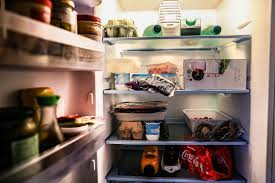Your Cart is Empty
FREE Worldwide Shipping! | +1 365 654 6605
FREE Worldwide Shipping! | +1 365 654 6605
April 06, 2024 4 min read

Water leakage in kitchen appliances can be a frustrating and potentially damaging issue for homeowners. From leaking faucets to faulty dishwashers, these problems can result in water damage if not addressed promptly. In this article, we will explore the six most common causes of water leakage in kitchen appliances and provide practical solutions for each issue. The kitchen sink and faucet are among the most frequently used areas in the kitchen, making them susceptible to water leakage. There are several potential causes for water leakage in this area. Over time, the gaskets and O-rings in the sink faucet can become worn out, leading to leaks. These small rubber components are responsible for creating a watertight seal, and when they deteriorate, water can seep through the gaps. Improperly installed faucets or loose connections can also cause water leakage in the sink area. If the faucet is not securely attached or the connections are loose, water can escape through the gaps. For families with children, the sink sprayer can be a source of water leakage. Pulling on the sprayer nozzle during play can loosen the connections, causing leaks in visible areas, such as above or below the counter. Garbage disposals are convenient kitchen appliances for disposing of food waste, but they can also be a source of water leakage if not properly maintained. The garbage disposal can develop leaks at the points where it connects to the sink or drain. Over time, the seal between these components can deteriorate, resulting in water leakage. Dishwashers are essential kitchen appliances, but when they malfunction, they can cause water leakage. Here are a few common causes of dishwasher leaks. Over time, dishwashers may develop leaks due to normal wear and tear. The rubber gaskets and seals that keep the water contained inside the dishwasher can degrade, leading to water leakage. Improper loading of dishes or adding too much soap can cause the dishwasher to overflow, resulting in water leakage. Excessive soap can create excessive suds, leading to overflow during the wash cycle. Cracks in the hoses or loose connections to the drainpipes or water source can also cause water leakage in the dishwasher. Unnoticeable leaks can occur for a prolonged period under the dishwasher, leading to damage to the flooring and potential mold growth. Refrigerators play a crucial role in the kitchen, but they can also be a source of water leakage if certain components malfunction. Here are two common causes of refrigerator leaks. Water lines in refrigerators can develop cracks, resulting in leaks and subsequent water damage. These cracks can occur in both the tubing and the water lines that connect to the ice maker and water dispenser. The tubing in the freezer of a refrigerator can freeze and burst, causing water to accumulate underneath. Additionally, moisture droplets from water and ice dispensers can seep through mats placed underneath, leading to water damage to the floor. Water coolers are a luxury in the kitchen, but they can also be a source of water leakage if not properly monitored and maintained. Loose or cracked spouts and jugs can cause water leakage in water coolers. Over time, the connections between the components may loosen or develop cracks, leading to unwanted water seepage. In harsh winter conditions, the pipes under the kitchen sink can freeze and burst, causing significant water damage. Freezing temperatures can also compromise the connections, leading to leaks. Water leakage in kitchen appliances can lead to significant water damage if not addressed promptly. By understanding the common causes of water leakage and implementing the suggested fixes, homeowners can prevent and resolve these issues effectively. Regular maintenance and inspection of kitchen appliances can help identify potential leaks and prevent extensive water damage. If water leakage persists or the damage is severe, it is recommended to consult a professional for further assistance. Remember, a proactive approach to kitchen appliance maintenance can save you time, money, and the stress of dealing with water damage in the future. By addressing water leakage issues promptly, you can ensure the proper functioning of your kitchen appliances and maintain a safe and dry kitchen environment.1. Sink and Faucet
Cause 1: Worn Out Gaskets and O-Rings
Cause 2: Loose Connections and Improper Installation
Cause 3: Damage to Sink Sprayer
2. Garbage Disposal
Cause: Leaks in Connection Points
3. Dishwasher
Cause 1: Normal Wear and Tear
Cause 2: Improper Loading or Excess Soap
Cause 3: Cracked Hoses or Loose Connections
4. Refrigerator
Cause 1: Broken Water Lines
Cause 2: Freezer Tubing Issues
5. Water Cooler
Cause: Loose or Cracked Components
6. Water Pipes
Conclusion
References
Be the first to know about upcoming sales and promos. Get a 10% discount coupon when you subscribe!